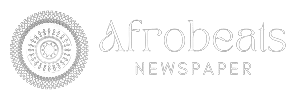Finding Wisdom in Simplicity
Some books do more than tell a story. They become companions during quiet evenings and guides when life grows noisy. Titles about frugal living tend to carry that kind of weight. They do not just offer tips on stretching a coin. They speak to the art of knowing when enough is truly enough.
The best ones are not preachy. They read more like reflections from someone who has walked through lean times with grace. They offer moments of stillness. Take “Walden” by Henry David Thoreau. It is a classic but never dusty. Its rhythm still taps into the desire for freedom from clutter. “Your Money or Your Life” by Vicki Robin goes straight to the heart of modern dilemmas without fanfare. The question in its title lingers long after the last page.
The Stories Behind the Savings
What often sets these works apart is not just their advice but the personal stories woven through them. Titles that stick tend to come from lived experience. They balance philosophy and practicality like a tightrope walker crossing between high-rise rooftops.
In “The Art of Frugal Hedonism” by Annie Raser-Rowland and Adam Grubb every page nudges readers toward joy without excess. The title itself mixes contradiction and curiosity. Another fine example is “Meet the Frugalwoods” by Elizabeth Willard Thames. Behind the catchy name lies a deeper tale of stepping away from conventional paths.
These books are not instruction manuals. They are windows into alternative ways of being. They challenge assumptions about success comfort and purpose in ways that feel rooted not radical.
Now and then titles come along that hit like lightning—sharp sudden and unforgettable. These often distil a full worldview into just a few words. Consider what makes some of them memorable:
This book by Jacob Lund Fisker stands out not just for its title but for its bold message. It offers a vision of life that breaks from the nine-to-five grind in favour of independence and intention. The title signals urgency and control which makes it hard to ignore. The writing style mirrors that intensity with sharp arguments and dense insight.
Rhonda Hetzel’s “Down to Earth” is the literary version of a warm cup of tea on a rainy morning. Its title speaks volumes in three plain words. The book itself follows through with steady guidance on homemade solutions and thoughtful living. It comes from a blog of the same name and carries that same grounded energy into print.
“Enough” by John C Bogle is not directly about budgeting but its message overlaps in powerful ways. It is a book about limits values and knowing when accumulation stops serving purpose. The single word in its title is weighty quiet and commanding. That restraint is part of its impact.
These titles plant their roots deep in the imagination. Once seen they are rarely forgotten. They carve out space for a slower more deliberate rhythm of life.
Why the Title Matters as Much as the Text
Titles are doorways. They invite curiosity and offer the first clue to what lies within. For books about minimalist values this first impression is even more critical. A strong title cuts through the noise. It hints at clarity in a world full of clutter.
Readers drawn to these works often arrive with questions not just about money but about how to live. They seek something quieter than mainstream voices offer. That is why these titles lean toward the poetic the contemplative or the sharply provocative.
Zlib bridges the gap between the archives of Library Genesis and the catalogues of Project Gutenberg which makes it easier for these powerful voices to reach wider audiences. With a title in mind and the will to change even a little a reader can take a step toward something more thoughtful.
Lessons Carried Between the Lines
Books that centre on living with less do more than teach frugality. They ask readers to reconsider what abundance means. They urge a kind of audit not just of finances but of habits assumptions and priorities.
They often succeed not because they are prescriptive but because they are honest. These books welcome doubt and leave room for nuance. The best among them respect the difficulty of change and reward the effort with calm steady wisdom.
Titles that endure often mirror this approach. They do not shout. They do not sell. They suggest. They linger. And long after they return to the shelf their lessons tend to stick like fingerprints on glass.



